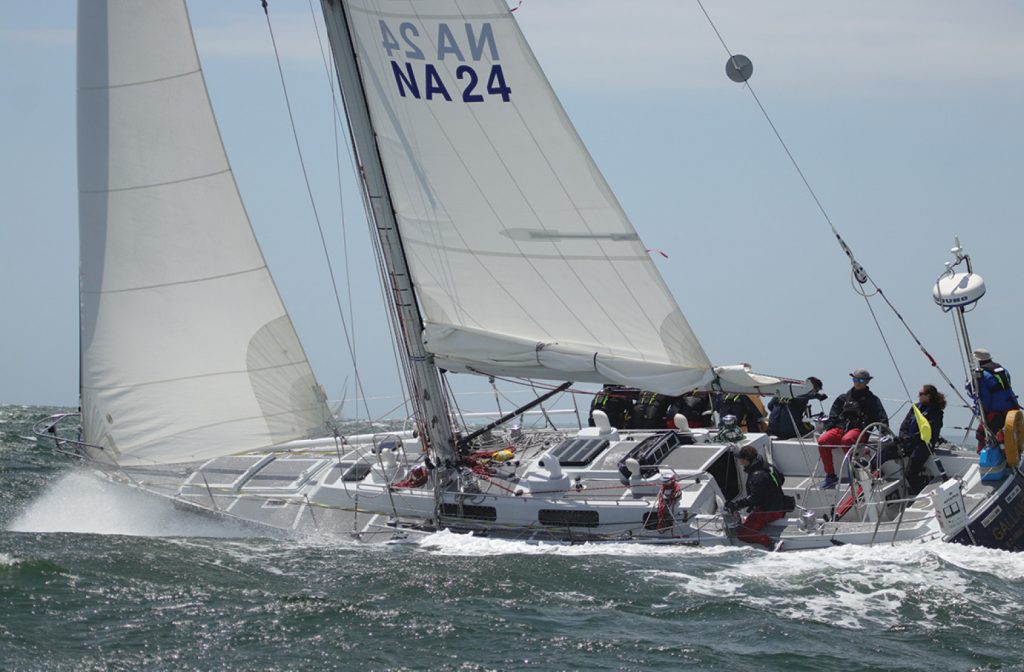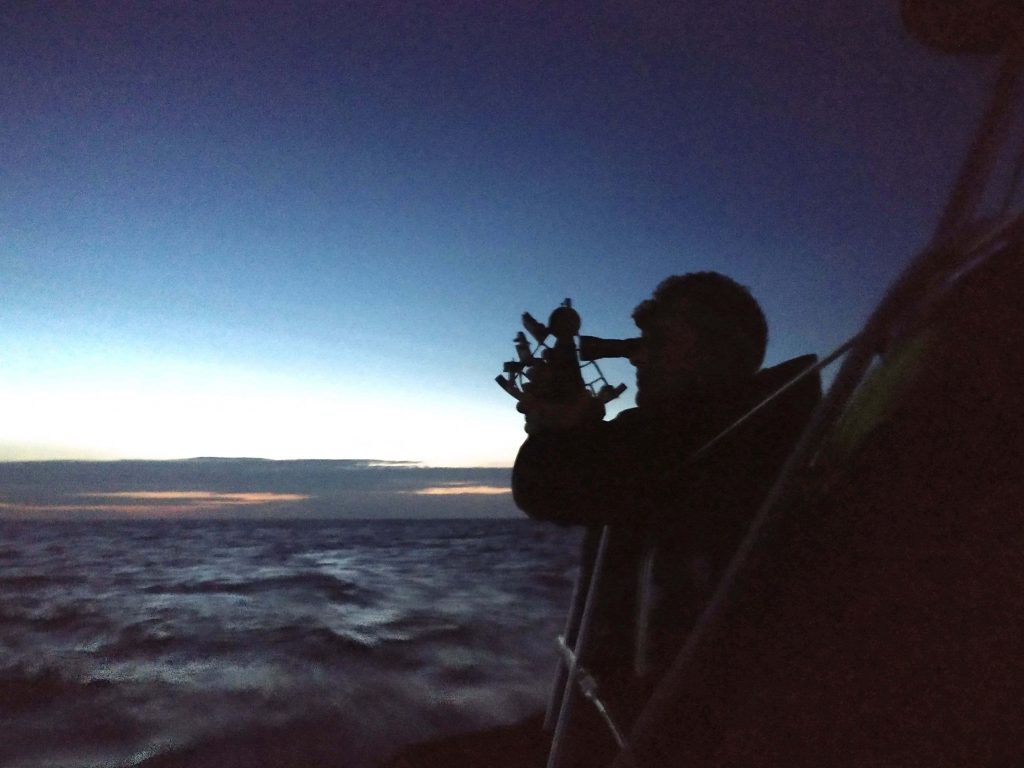By Christian E. Hoffman
MIDN USN, Varsity Offshore Sailing Team Captain
Being the skipper of a service academy racing yacht, particularly on the United States Naval Academy Varsity Offshore Sailing Team (VOST), provides both challenges and hardships, but results in incredible reward. Each summer VOST crews depart from Annapolis, MD in vessels ranging from a Reichel/Pugh 66 to Navy 44s. Whether you are competing in an offshore distance race from Marion to Bermuda or buoy racing in Newport, if you compete on the East Coast during the summer there is likely a VOST crew competing in the fleet as well. In this article, I would like to provide a brief insight into the 2019 summer season with the crews aboard the Navy 44s Gallant and Defiance, particularly their experiences as youth crews and competing in the Celestial navigation division of the Marion Bermuda Race.
The Navy Varsity Offshore Sailing Team is a team built from walk-ons. Most of the team’s sailors have no sailing background prior to attending mandatory lessons during the Naval Academy’s summer induction period, Plebe Summer. This holds true for the crew of Gallant; five of the eight crew had no sailing experience prior to the summer season. Coupled to this lack of background, VOST constructs the crew from scratch at the beginning of each season. A typical Navy 44 crew consists of a senior skipper and executive officer, who carry the ultimate responsibility for the crew, materials and results, plus two juniors and four sophomores. The summer is often the sophomores’ first experience with the varsity team after competing for a semester with the junior varsity program.
Beginning from a blank slate can be daunting for a skipper in the midst of a challenging academic year. Skippers frequently confer with his or her executive officer and outline the dynamic that they wish to foster among their crew. Doing this early in our season is vital. Forging strong bonds amongst the crew is what provides resilience when facing an arduous schedule for competitions. After the conclusion of a three-day Annapolis to Newport race, the crews of Gallant and Defiance had a day for boat maintenance, a day of transit, and a day of liberty before starting the Marion Bermuda Race. Such a taxing schedule is sure to cause friction, but the crew can easily mitigate issues when the crew camaraderie is strong.

Gallant powers out of Buzzards Bay under shortened sail. © Spectrum Photo/Fran Grenon
Celestial navigation provides an additional challenge to any offshore distance race. Midshipmen on VOST receive extensive training each year on electronic navigation software systems, which can provide information that is crucial in forming tactical strategy. Apart from training received on VOST, all midshipmen enroll in navigation courses that teach the fundamentals of celestial navigation. However, for most of the crew on Gallant and Defiance, the Marion Bermuda Race was the first opportunity to put theory into practice.
Aboard Gallant, the crew’s navigator, Midshipman Adam Lance, conducted celestial fixes. At dawn and dusk, Adam would come on deck, sextant in one hand and a list of stars in the other, ready to obtain a fix. The first fixes were difficult – Adam described shooting star sights as “trying to find a fly through a small tube.” With more practice, the fixes became more accurate and were crucial to developing a solidified strategy as Gallant entered the Gulf Stream. The development of a strategy and accurate position was crucial for the success of the crew.

Midshipman Adam Lance takes a fix.
One of the most rewarding feelings of completing the Marion Bermuda Race using celestial navigation was the fix that gave our position just outside of Bermuda. The feeling of accomplishment and accompanying collective sigh of relief was tangible throughout the crew. The challenges of being a youth crew conducting celestial navigation, while remaining furiously competitive, provided unique lessons in leadership and seamanship which will remain with the crew for races to come. ■
The author skippered Gallant to victory in Class B of the 2019 Marion Bermuda Race with an elapsed time of 3 days, 18 hours, 57 hours and 58 seconds. The USNA’s other Navy 44 in the race, Defiance, co-skippered by Midshipmen George Hamilton and Kevin Navarro, finished third in Class B with an e.t. of 3 days, 20 hours, 22 minutes and 33 seconds.




